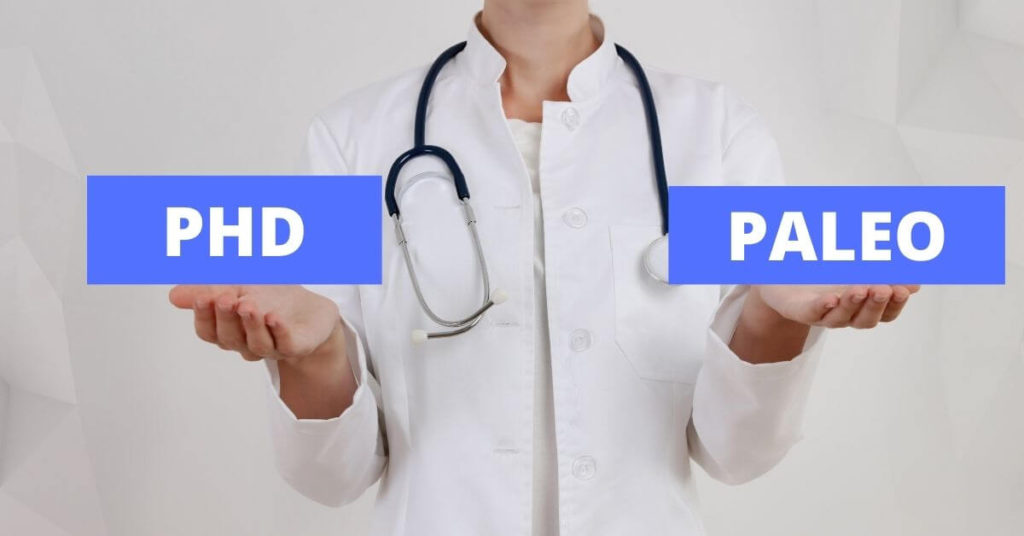The Evolutionary Basis of Human Nutrition
Dr. Ken Berry emphasizes the evolutionary basis of human nutrition, highlighting how our bodies are adapted to thrive on a diet of whole, unprocessed foods. He asserts that our ancestors’ diet consisted primarily of meat and that our bodies have evolved over millennia to efficiently extract nutrients and energy from these foods.
Dr. Berry explains that our digestive systems are well-suited to processing animal proteins, which provide essential amino acids for building and repairing tissues. He also notes that animal fats, contrary to popular misconceptions, can play a beneficial role in a healthy diet, providing a concentrated source of energy and essential fatty acids.

He contrasts this with the relatively recent introduction of processed foods, sugary drinks, and artificial sweeteners, which are high in calories, unhealthy fats, and added sugars. He argues that our bodies are not adapted to process these foods effectively, leading to a myriad of health problems, including obesity, diabetes, and heart disease.
Dr. Berry advocates for a return to our ancestral dietary patterns, emphasizing the importance of consuming whole, unprocessed foods that align with our evolutionary heritage. He believes that this is the most natural and sustainable approach to achieving optimal health and longevity.
Disclaimer:
The views expressed in this article are solely my own interpretation of Dr. Ken Berry’s thoughts on the Proper Human Diet. While I have endeavored to provide accurate and comprehensive information, there may be instances where my interpretation deviates from Dr. Berry’s original statements or intentions. For a more authoritative understanding of the PHD, please refer to Dr. Berry’s original works or consult with a qualified healthcare professional.
Here are some key points from Dr. Berry’s perspective on the evolutionary basis of human nutrition:
- Our digestive systems are well-suited to processing animal proteins and fats, which were essential components of our ancestors’ diets.
- Processed foods, sugary drinks, and artificial sweeteners are relatively recent additions to our diet and are not well-suited to our bodies’ metabolism.
- A diet rich in whole, unprocessed foods aligns with our evolutionary heritage and promotes optimal health and well-being.
The Science Behind the Proper Human Diet

Dr. Ken Berry’s Proper Human Diet (PHD) is a low-carbohydrate, high-protein diet that is based on the scientific principles of evolutionary biology and nutritional biochemistry. He believes that this diet is the most natural and healthy way for humans to eat and that it can help to prevent and reverse a variety of chronic diseases.
For a comprehensive introduction to the Proper Human Diet and its foundational principles, I recommend exploring our beginner’s guide to the Proper Human Diet. This guide offers valuable insights and step-by-step advice for those starting their journey towards a healthier, meat-centric dietary lifestyle.
Benefits of High-Protein, Low-Carbohydrate Diets
Dr. Berry emphasizes the benefits of high-protein, low-carbohydrate diets, citing numerous studies that have demonstrated their effectiveness in weight loss, improved blood sugar control, and reduced risk of chronic diseases.
He explains that protein is a satiating macronutrient that helps to reduce hunger and cravings while also promoting muscle growth and repair. Low-carbohydrate diets, on the other hand, have been shown to improve insulin sensitivity, reduce inflammation, and lower triglyceride levels.
Role of Animal Fats in a Healthy Diet
Dr. Berry challenges the common misconception that animal fats are unhealthy, asserting that they play a beneficial role in a proper human diet. He explains that animal fats provide a concentrated source of energy and essential fatty acids, which are crucial for various bodily functions, including hormone production, cell growth, and brain health.
Scientific Evidence Supporting the PHD
Dr. Berry draws upon a wealth of scientific evidence to support the PHD, citing studies that have linked high-protein, low-carbohydrate diets to improved weight loss and reduced risk of heart disease, type 2 diabetes, and certain cancers. He also emphasizes the importance of whole, unprocessed foods, highlighting their nutrient-dense content and potential health benefits.
Key Points from Dr. Berry’s Perspective
- High-protein, low-carbohydrate diets have been shown to be effective in weight loss, improved blood sugar control, and reduced risk of chronic diseases.
- Animal fats, when consumed in moderation, can play a beneficial role in a healthy diet, providing essential nutrients and energy.
- The PHD is based on the scientific principles of evolutionary biology and nutritional biochemistry, aligning with our natural dietary patterns for optimal health.
Dispelling Common Myths about Diet and Nutrition

Dr. Ken Berry emphasizes the importance of dispelling common myths and misconceptions about diet and nutrition, asserting that making informed decisions requires separating fact from fiction. He encourages individuals to critically evaluate popular dietary trends and claims, seeking evidence-based information from reputable sources.
Addressing Common Myths
Dr. Berry addresses several prevalent myths about food and nutrition, providing clarifications and evidence-based counterarguments. He challenges the notion that all fats are unhealthy, explaining the distinction between saturated and unsaturated fats and their respective roles in a balanced diet. He also dispels the myth that all carbohydrates are detrimental, emphasizing the importance of complex carbohydrates from whole grains, fruits, and vegetables.
Evaluating Dietary Trends Critically
Dr. Berry cautions against blindly following popular dietary trends or fads, urging individuals to critically evaluate the underlying evidence and potential risks. He encourages a personalized approach to nutrition, considering individual health needs, preferences, and lifestyle factors.
Sources of Evidence-Based Information
Dr. Berry recommends seeking information from reputable sources, such as peer-reviewed scientific journals, registered dietitians, and evidence-based websites. He encourages individuals to be cautious of sensationalized media headlines and claims lacking scientific backing.
Key Points from Dr. Berry’s Perspective
- Critical evaluation of dietary trends and claims is essential for making informed decisions about food and nutrition.
- Distinguishing between fact and fiction in popular nutrition information is crucial.
- Evidence-based sources, such as peer-reviewed studies and qualified professionals, are reliable sources of nutrition information.
By dispelling common myths and promoting evidence-based nutrition education, Dr. Berry aims to empower individuals to make informed choices that support their overall health and well-being.
Embracing the Proper Human Diet Lifestyle

Stocking Your Kitchen for Success
Dr. Ken Berry emphasizes the importance of stocking your kitchen with PHD-compliant foods to support your dietary goals and make healthy eating a convenient and enjoyable experience. He suggests creating a well-stocked pantry and refrigerator with essential ingredients that align with the principles of the PHD.
Essential Pantry Items
- Meat, poultry, and fish: Opt for whole cuts of meat, poultry, and fish, such as chicken breasts, salmon fillets, and beef tenderloin. Avoid processed meats, deli meats, and pre-marinated options.
- Eggs: Keep a supply of fresh eggs, a versatile protein source that can be enjoyed in various forms, including scrambled, poached, or hard-boiled.
- Nuts and seeds: Stock up on nuts like almonds, walnuts, and pecans, and seeds like chia seeds, flaxseeds, and pumpkin seeds for healthy snacks and sources of essential fats and fiber.
- Healthy fats: Include a variety of healthy fats, such as olive oil, avocado oil, and grass-fed butter, for cooking and adding flavor to dishes.
- Low-carb vegetables: Keep a variety of low-carb vegetables, such as broccoli, spinach, asparagus, and zucchini, on hand for salads, side dishes, and stir-fries.
- Canned and frozen vegetables: Stock up on canned and frozen vegetables, such as green beans, carrots, and peas, for convenient and nutritious meal options.
Essential Refrigerator Items
- Dairy products: Choose full-fat dairy products, such as milk, cheese, and yogurt, for their nutrient content and flavor.
- Low-carb fruits: Keep a selection of low-carb fruits, such as berries and avocados, for healthy snacks and desserts.
- Herbs and spices: Stock up on a variety of herbs and spices to enhance the flavor of your meals without adding unhealthy ingredients.
- Prepared PHD-compliant ingredients: Consider keeping pre-cooked meats, chopped vegetables, and hard-boiled eggs for quick and easy meal preparation.

Additional Tips for Stocking Your Kitchen:
- Plan your meals ahead of time: Planning meals for the week can help you avoid impulse purchases at the grocery store.
- Make a grocery list: Creating a detailed grocery list ensures you only buy what you need and reduces the temptation to buy unhealthy items.
- Shop the perimeter of the grocery store: Focus on the perimeter of the store, where whole, unprocessed foods are typically located.
- Cook in bulk: Cooking larger quantities of PHD-compliant meals allows for leftovers and reduces the need for daily cooking.
- Label and organize your pantry and refrigerator: Proper organization makes it easier to find the ingredients you need and reduces food waste.
Dr. Ken Berry emphasizes the importance of creating delicious and nutritious meals that align with the principles of the Proper Human Diet (PHD) to make healthy eating a sustainable and enjoyable lifestyle. He encourages individuals to experiment with different flavors, cooking techniques, and recipes to find dishes they truly enjoy.
Practical Tips for Creating PHD Meals:
- Prioritize whole, unprocessed foods: Focus on the core components of the PHD, such as meat, fish, eggs, and healthy fats, as the foundation of your meals.
- Balance macronutrients: Ensure your meals provide a balance of protein, fat, and carbohydrates, with protein being the primary macronutrient.
- Incorporate variety: Avoid monotony by incorporating a variety of flavors, textures, and colors into your meals.
- Utilize simple cooking techniques: Simple cooking methods like grilling, baking, roasting, and sautéing preserve nutrients and enhance the natural flavors of ingredients.
- Season with herbs and spices: Experiment with a variety of herbs and spices to add depth and complexity to your dishes.
- Make it visually appealing: Take pride in the presentation of your meals, making them visually appealing and inviting.

Sample PHD Meal Recipes:
- Breakfast:
- Scrambled eggs with bacon, avocado, and spinach
- Greek yogurt parfait with berries and nuts
- Omelet with sautéed vegetables and cheese
- Lunch:
- Grilled salmon salad with mixed greens, cucumbers, tomatoes, and a vinaigrette dressing
- Chicken stir-fry with broccoli
- Tuna salad stuffed avocado with a side of celery sticks
- Dinner:
- Roasted chicken with roasted vegetables and a side of mashed cauliflower
- Grilled steak with grilled asparagus and a side of roasted sweet potatoes
- Baked salmon with lemon and herbs, served with roasted Brussels sprouts and quinoa
Key Points from Dr. Berry’s Perspective
- Delicious and nutritious meals are essential for long-term success on the PHD.
- Experimentation with flavors, cooking techniques, and recipes is encouraged.
- Simple cooking methods preserve nutrients and enhance natural flavors.
- Herbs and spices add depth and complexity to dishes.
- Visually appealing meals are more inviting and enjoyable.
By following these tips and incorporating sample PHD meal recipes, individuals can create delicious and nutritious meals that align with the principles of the PHD, making it easy to incorporate the diet into their daily lives and achieve their health and wellness goals.
Managing Cravings and Overcoming Setbacks

Dr. Ken Berry acknowledges that transitioning to a new diet, such as the Proper Human Diet (PHD), can present challenges in the form of cravings and setbacks. He emphasizes the importance of understanding and addressing these challenges to maintain adherence to the PHD and achieve long-term success.
Identifying Cravings Triggers
Dr. Berry advises individuals to identify their personal cravings triggers, which are factors that instigate strong desires for unhealthy foods. These triggers can be emotional, environmental, or habitual.
- Emotional Triggers: Cravings can arise in response to emotional states like stress, anxiety, or boredom. Recognizing these emotional triggers is crucial for developing healthy coping mechanisms.
- Environmental Triggers: External cues like certain places, people, or smells can trigger cravings. Avoiding these triggers or changing the context in which they occur can be helpful.
- Habituated Behaviors: Habitual patterns of eating, such as reaching for snacks during breaks or after meals, even when not hungry, can lead to cravings. Breaking these habits and establishing new routines can be beneficial.
Developing Healthy Coping Mechanisms
Dr. Berry suggests developing healthy coping mechanisms to manage cravings rather than succumbing to unhealthy choices. These coping mechanisms should address the underlying cause of cravings and provide alternative sources of satisfaction.
- Mindful Eating Practices: Engaging in mindful eating practices, such as focusing on the taste, texture, and aroma of food, can enhance satiety and reduce cravings.
- Non-Food Rewards: Identifying and engaging in non-food rewards, such as hobbies, spending time in nature, or listening to music, can provide alternative sources of pleasure and reduce cravings triggered by emotional factors.
- Stress Management Techniques: Implementing stress management techniques, such as exercise, meditation, or yoga, can help address cravings triggered by emotional stress.
Maintaining a Positive Mindset
Dr. Berry emphasizes the importance of maintaining a positive mindset during the transition to the PHD and throughout the journey. A positive mindset can help overcome setbacks and foster long-term adherence to the diet.
- Self-Compassion: Practicing self-compassion after setbacks is crucial. Avoid self-criticism and recognize that occasional indulgences are normal and don’t derail progress.
- Set Realistic Goals: Setting achievable goals and celebrating small successes along the way can maintain motivation and reinforce positive behavior changes.
- Seek Support: Surrounding oneself with supportive individuals who share similar dietary goals or seeking professional guidance from a registered dietitian or nutritionist can provide encouragement and accountability.
Dr. Berry’s approach to managing cravings and overcoming setbacks emphasizes understanding personal triggers, developing healthy coping mechanisms, and maintaining a positive mindset. By implementing these strategies, individuals can navigate the challenges of transitioning to the PHD and achieve long-term success in their dietary journey.
Living the Proper Human Diet for Long-Term Health

Finding Support and Building a Community
Dr. Ken Berry highly emphasizes the importance of finding a supportive community of like-minded individuals who share similar dietary goals when embarking on the Proper Human Diet (PHD) journey. He believes that surrounding oneself with individuals who understand the challenges and triumphs of the diet can provide invaluable motivation, encouragement, and accountability.
Benefits of a Supportive Community
- Shared Experiences and Understanding: Connecting with others on the PHD journey fosters a sense of camaraderie and understanding, as individuals can relate to one another’s experiences, challenges, and successes.
- Motivation and Encouragement: A supportive community provides a source of motivation and encouragement, especially during challenging times. Sharing progress, celebrating milestones, and offering support during setbacks can help individuals stay on track.
- Exchange of Knowledge and Tips: Community members can share their knowledge, tips, and experiences related to the PHD, providing valuable insights and strategies for success.
- Accountability and Responsibility: Being part of a community adds a layer of accountability, prompting individuals to uphold their commitment to the PHD.
Ways to Find a Supportive Community:
- Online Forums and Social Media Groups: Joining online forums and social media groups dedicated to the PHD or similar dietary approaches can connect individuals with a wider community of like-minded individuals.
- Local Support Groups: Attending local support groups or meetups focused on the PHD or healthy living can provide opportunities for face-to-face interaction and support.
- Friends and Family: Sharing the PHD journey with supportive friends and family members can provide encouragement and accountability within a close circle.
- Professional Guidance: Seeking guidance from a registered dietitian or nutritionist can provide personalized support, tailored advice, and connection to relevant community resources.
Dr. Berry believes that fostering a strong support system is an integral part of successful adherence to the PHD. By surrounding oneself with a supportive community, individuals can gain motivation, encouragement, accountability, and a sense of belonging, making the journey more enjoyable and rewarding.
Setting Realistic Goals and Celebrating Successes

Dr. Ken Berry strongly advocates setting realistic goals and celebrating successes as essential components of achieving long-term success on the Proper Human Diet (PHD.). He believes that breaking down the journey into achievable milestones and acknowledging small victories can significantly enhance motivation, foster a positive mindset, and reinforce positive behavior changes.
Significance of Realistic Goals
Dr. Berry emphasizes the importance of setting realistic and attainable goals that align with individual capabilities, lifestyles, and desired outcomes. Setting unrealistic or overly ambitious goals can lead to discouragement, frustration, and a sense of failure, potentially hindering progress and overall adherence to the PHD.
Breaking Down the Journey
He suggests breaking down the PHD journey into smaller, more manageable goals, allowing individuals to focus on achievable steps and celebrate progress along the way. This approach can make the overall journey less daunting and more attainable, promoting a sense of accomplishment and motivation.
Celebrating Small Victories
Dr. Berry highlights the importance of acknowledging and celebrating small victories, no matter how insignificant they may seem. Recognizing and celebrating these achievements, even if they are small steps like adhering to meal plans or resisting cravings, can reinforce positive behavior patterns and maintain motivation.
Tracking Progress
Dr. Berry recommends keeping track of progress, whether through a journal, a food diary, or a progress chart. This can provide tangible evidence of accomplishments, reinforcing a sense of achievement and motivating further progress.
Impact on Motivation and Mindset
By setting realistic goals, breaking down the journey, celebrating small victories, and tracking progress, individuals can foster a positive mindset, enhance motivation, and maintain adherence to the PHD, ultimately achieving their long-term health and wellness goals.
Dr. Berry’s emphasis on setting realistic goals and celebrating successes underscores the importance of creating a sustainable and enjoyable approach to the PHD. By recognizing and rewarding progress, individuals can maintain motivation, overcome challenges, and experience the transformative benefits of the PHD on their journey toward optimal health and well-being.
Seeking Professional Guidance When Needed

Dr. Ken Berry strongly advocates for seeking professional guidance from registered dietitians (RDs) or nutritionists when needed during the Proper Human Diet (PHD) journey. He recognizes that individuals may face unique challenges, have specific health considerations, or require tailored advice to optimize their success on the PHD.
Value of Professional Guidance
RDs and nutritionists possess extensive knowledge and expertise in nutrition, dietary planning, and behavior change strategies. They can provide personalized advice tailored to individual needs, preferences, and health conditions.
Addressing Specific Challenges
Individuals facing specific challenges, such as managing cravings, overcoming setbacks, or addressing underlying health conditions, can benefit significantly from professional guidance. RDs and nutritionists can help identify customized strategies, provide support, and monitor progress throughout the PHD journey.
Tailored Advice and Recommendations
RDs and nutritionists can offer personalized recommendations for meal plans, food choices, and supplement protocols, ensuring that individuals are making informed decisions aligned with their specific needs and goals.
Monitoring Progress and Making Adjustments
RDs and nutritionists can monitor progress, assess outcomes, and make necessary adjustments to the PHD plan as needed. This ongoing support can help individuals optimize their results and achieve their desired health outcomes.
Enhancing Motivation and Confidence
Professional guidance can boost motivation, enhance confidence, and instill a sense of accountability, particularly for individuals embarking on a new dietary approach. RDs and nutritionists can provide encouragement, address concerns, and celebrate successes along the way.
Dr. Berry emphasizes that seeking professional guidance should not be perceived as a sign of weakness but rather a proactive step towards maximizing the benefits and success of the PHD journey. RDs and nutritionists serve as valuable partners, providing personalized support, tailored advice, and expert guidance to help individuals achieve their optimal health and well-being goals.
Embracing a Healthy Lifestyle Beyond Diet

Dr. Ken Berry strongly advocates for embracing a holistic approach to health, incorporating regular exercise, adequate sleep, and stress management techniques alongside the Proper Human Diet (PHD) to achieve optimal well-being. He believes that optimizing overall health requires a comprehensive approach that addresses multiple aspects of lifestyle, not just dietary habits.
Significance of Holistic Health
Dr. Berry emphasizes that physical, mental, and emotional health are interconnected and that optimizing one aspect can positively impact others. By adopting a holistic approach that encompasses diet, exercise, sleep, and stress management, individuals can achieve a higher level of well-being and overall health.
Regular Exercise
Regular physical activity plays a crucial role in maintaining overall health, contributing to weight management, cardiovascular health, bone health, and mental well-being. Dr. Berry encourages individuals to incorporate regular exercise into their routines, aiming for at least 30 minutes of moderate-intensity exercise most days of the week.
Adequate Sleep
Sleep is essential for physical and mental restoration, allowing the body to repair and rejuvenate itself. Dr. Berry recommends prioritizing adequate sleep, aiming for 7-8 hours of quality sleep each night. Adequate sleep supports cognitive function, mood regulation, and overall physical health.
Stress Management Techniques
Chronic stress can negatively impact physical and mental health. Dr. Berry suggests incorporating stress management techniques into daily routines, such as mindfulness practices, yoga, meditation, or deep breathing exercises. Effective stress management can reduce anxiety, improve mood, and enhance overall well-being.
Complementary Aspects of Optimal Health
Dr. Berry emphasizes that regular exercise, adequate sleep, and stress management techniques complement the PHD, creating a synergistic approach to achieving optimal health. These lifestyle factors enhance the benefits of the PHD, promoting physical fitness, mental clarity, emotional resilience, and overall well-being.
Holistic Approach for Long-Term Success
By embracing a holistic approach that encompasses diet, exercise, sleep, and stress management, individuals can unlock their full potential for health and well-being. This comprehensive strategy sets the foundation for long-term success, enabling individuals to thrive in all aspects of their lives.
To seamlessly integrate the Proper Human Diet into your daily routine, check out our 7-day meal plan, complete with delicious and nutritious recipes. This plan is designed to guide you through a week of eating in alignment with the Proper Human Diet principles, making your transition to this healthful way of eating both enjoyable and straightforward.
Disclaimer:
The information provided in this article is for informational purposes only and should not be construed as medical advice. Please consult with a qualified healthcare professional before making any significant changes to your diet or lifestyle.


